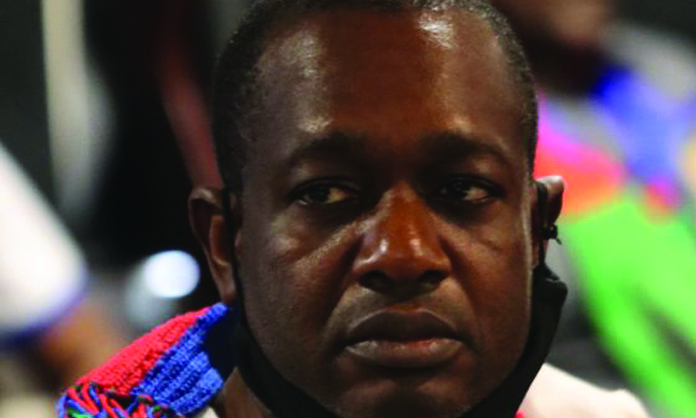Peya Mushelenga on the occasion of Sunshine Private College’s fourth graduation ceremony on 5 April:
It is my singular pleasure to be present at the graduation ceremony of Sunshine Private College.
I found it irresistible to decline an invitation to officiate this prestigious occasion, because my life is inseparable from the academic world.
I, however, feel particularly small for the accolades attributed to me by professor Jairos Kangira, a renowned linguistic academic of international stature, who has language edited my two doctoral theses.
I am dwarfed by his titanic academic credentials and have admiration for his intellectual aptitude.
He and his wife, Nomakando Kangira, have a passion for the education of Namibian learners and students.
Today, we join in the celebration of 79 students who have successfully
accomplished the post-graduate diploma in education at Sunshine Private College.
Dear graduands, I am a teacher by profession and am fully conversant with teacher education programmes, which cover academic fields like the history of education, education philosophy, sociology of education,
psychology of education and classroom management, just to mention, a few.
You have an important responsibility ahead of you, namely to impart knowledge to Namibian learners and prepare them for their future roles in our society.
I congratulate you wholeheartedly on completing your studies.
The significance of today’s graduation ceremony is the role that Sunshine Private College is playing in addressing the problem of unqualified teachers in our country.
South African academics, Muremela et al surmise in their discourse titled ‘The Impact of Managing the Supply and Demand for Scarce Skill Subject Teachers on the Quality of Learning and Teaching in Rural Secondary Schools’, that teacher shortages are a global issue affecting countries worldwide, with implications for education quality, development goals, and societal well-being.
The scale of this challenge is massive, as the United Nations Educational, Scientific and Cultural Organisation estimates a need for an additional 69 million teachers by 2030 to achieve universal primary and secondary education.
Low-income countries, conflict-affected regions, and remote rural areas are particularly hard hit, with sub-Saharan Africa facing an estimated shortage of 17 million teachers by 2030.
The learned academics maintain that a comprehensive solution to the problem needs to be found, which includes enhancing teacher training. Further, deliberations of delegates of the Africa Federation of Teaching Regulatory Authorities (Aftra) conference held last year in Windhoek painted a gloomy picture of the negative impact untrained and unqualified teachers have on the academic performance of learners in schools on the continent.
Aftra is an intergovernmental organisation comprising the ministries of education and national agencies regulating teaching in all member states of the African Union.
A lack of qualified teachers impacts negatively on the quality of education. The introduction of new school curricula without training teachers to implement those curricula effectively contributes to a high failure rate in many countries.
In Kenya, for instance, in 2021, more than 80% of teachers needed a diploma, not a certificate, to teach the new competency-based curriculum. There was a need to launch a one-year diploma programme to prepare teachers to implement the new curriculum.
Similarly, yours truly expounded the problem of mismatches between teacher training programme at institutions of higher learning and teaching contents at secondary schools in his academic thesis, titled ‘The Impact of Discrepancies Between Teacher Training Institutions and Secondary Schools’ Curricula in the Teaching of English as a Second Language in Namibia’.
The contents between the two phases manifest substantial discrepancies, which is eventually reflected in the performance of learners.
The reality on the ground shows that the conundrum of untrained and unqualified teachers in Africa will take more time than anticipated to eradicate.
In some remote and nomadic communities in Africa, untrained and unqualified teachers run schools and this is accepted as the norm in those communities that respective education authorities and communities find nothing untoward in this respect.
Similarly, there are ‘one-teacher schools’, where untrained teachers are in charge of all learners in a community. Undoubtedly, the provision of quality education to learners in such circumstances is highly compromised.
It will be amiss if I do not commend the initiatives by the Sunshine Private College in developing the post-graduate teaching qualification to address the shortage of skills in the teaching profession. Since its inception, the college has offered the following accredited programmes: post-graduate diploma in education, bachelor of education honours in junior primary, bachelor of education honours in senior primary, diploma in early childhood development and junior primary education.
I am reliably informed that more undergraduate and postgraduate programmes are in the pipeline. Given the increasing number of unemployed graduates who have primary education diplomas and degrees, I would like to advise the college to focus on secondary
education teacher programmes, particularly in the fields of science and mathematics, so that it can fill the gap existing in the education system.
To the graduands, I want to say: On this day, 5 April 2024, you are graduating, and the nation has expectations of you! You are joining an important profession, which is the foundation of all other professions. You should be exemplary to your learners and community members.
As you teach, you touch many lives and you influence those lives! As you execute your teaching duties, remember the values of Sunshine Private College: virtue, knowledge, perseverance, integrity, respect and commitment.
You should choose to be counted among those who construct and not destruct society, those who teach children, and not those who cheat the education system, and those who grow positive seeds and not negative weeds.
Congratulations to all of you graduating today! Congratulations to Sunshine Private College.
Stay informed with The Namibian – your source for credible journalism. Get in-depth reporting and opinions for
only N$85 a month. Invest in journalism, invest in democracy –
Subscribe Now!






